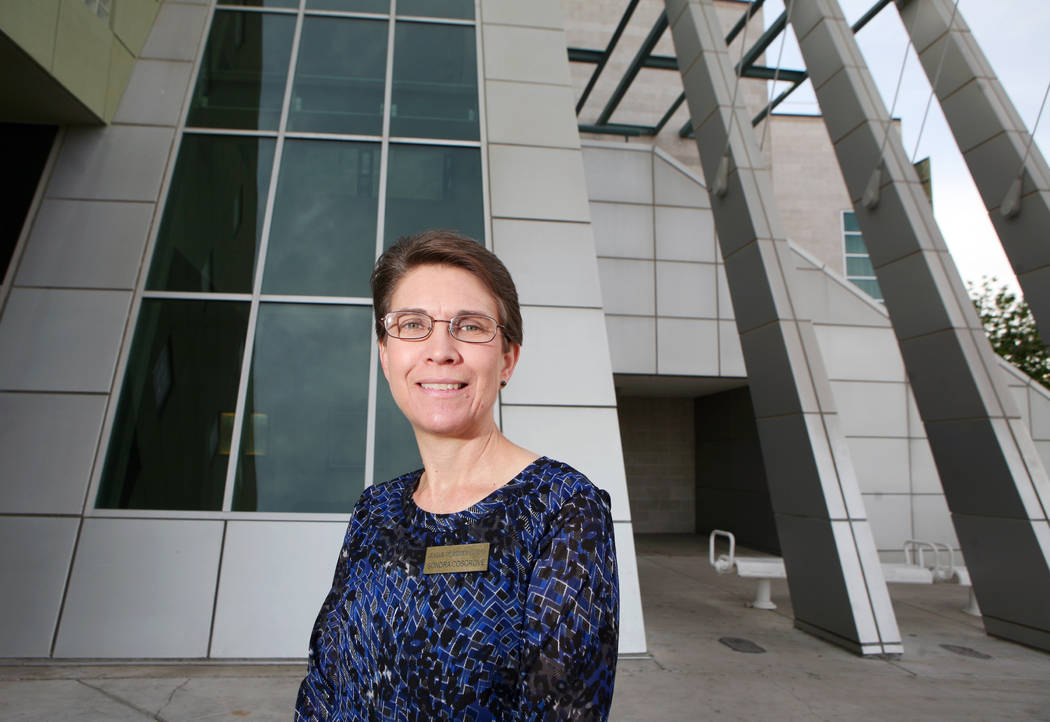Group seeks to end gerrymandering with independent commission

CARSON CITY — A group looking to end partisan gerrymandering in Nevada is taking the issue to the voters in hopes of creating a bipartisan independent commission to draw political boundaries in the state instead of lawmakers.
The League of Women Voters Nevada is expected to file a constitutional amendment with the Nevada secretary of state Monday afternoon that, if approved by voters in 2020 and again in 2022, would create a “bipartisan independent redistricting commission” that would have the sole authority to draw state legislative and congressional boundaries.
According to the description of the proposal, the commission would ensure that districts have roughly equal populations, are “geographically compact and contiguous,” provide equal opportunities for minorities to participate in the political process, don’t give an unwarranted advantage to one political party or another and are “politically competitive.”
The push for the commission comes after the U.S. Supreme Court ruled in June that the federal courts have no role in limiting how political parties in power draw electoral boundaries to help its candidate get elected.
For decades, the Nevada Legislature has been tasked with drawing those boundaries following the U.S. Census every 10 years, and lawmakers are slated to take up those districts again in 2021. Fourteen states currently have a commission with authority over drawing state legislative districts, and six others have advisory commissions according to the National Conference of State Legislatures.
Sondra Cosgrove, president of the group bringing the amendment and a history professor at the College of Southern Nevada, said one of the biggest complaints she hears from students is that they feel like their vote doesn’t count.
“People need to feel like the person representing you actually represents you,” Cosgrove said.
In Nevada, only two of the state’s four congressional districts are competitive. In the 1st Congressional District in central Clark County, currently represented by Democratic Rep. Dina Titus, registered Democratic voters outnumber Republicans by more than a two-to-one ratio. And in the 2nd District in Northern Nevada represented by Republican Rep. Mark Amodei, Republicans hold a nearly 50,000 registered voter lead over Democrats.
And at the legislative level, only a handful of the state’s 63 districts prove to be competitive in most years. In 2018, 13 state legislative races went uncontested in the November general election because no one from the opposite political party ran.
In 2011, the Nevada Legislature passed a redistricting plan but it was vetoed by then-Gov. Brian Sandoval. The task was assigned by a judge to a three-member panel of special masters instead.
By making the districts more competitive, candidates would have to be concerned with the entire voting population of the district as opposed to just their base voters, Cosgrove said.
If the proposed amendment gets voter approval in the next two elections, the commission would convene in 2023 and would have the opportunity to redraw the districts as it sees fit. After that, it would convene after each U.S. Census.
The majority and minority leaders in both chambers of the Legislature would each get to appoint one member of the commission, who would then appoint three other members who are not part of the Republican or Democratic parties.
The amendment would put strict rules on who could serve on the commission: within four years of the appointment, members cannot be an elected official, candidate for office, registered lobbyist, an officer or governing member of a political party, an employee of a politician or political group, an employee of the Legislature or state of Nevada, excluding those working in the judicial branch, the armed forces or in higher education. It also includes a nepotism clause, meaning that people related to someone who fall into those categories would also be disqualified.
To qualify for the 2020 ballot, the group will need to gather at least 97,598 total signatures, with at least 24,400 from each of the state’s four congressional districts, by June 16, 2020. To amend the constitution, voters would have to approve it in 2020 and again in 2022.
Contact Capital Bureau Chief Colton Lochhead at clochhead@reviewjournal.com or 775-461-3820. Follow @ColtonLochhead on Twitter.